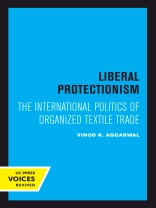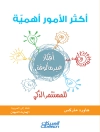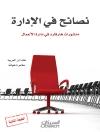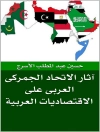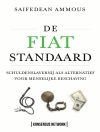What does organized trade portend for the future of the post–World War II trading order? Are we seeing a transition from liberalism to protectionism? These questions are central to Vinod K. Aggarwal’s penetrating analysis of conflict and cooperation in trade among developed and less developed countries. In his examination of the evolution of organized trade, Aggarwal specifically analyses international regimes in textile and apparel trade. The author uses an original theoretical approach to investigate international regimes. Why are regimes desirable? Aggarwal shows how such accords can protect broader arrangements, allow countries to control one another’s behavior, and minimize information and organization costs in negotiations. Several factors account for the form of regimes. The strength of regimes is enhanced by an asymmetry of international power. A hegemon is more willing and able to maintain a regime. Both the nature and scope of regimes are determined by the relative degree of trade competition and cognitive consensus among actors. As trade competition increases, and actors decide to link related issues, regimes become more protectionist in their goals and wider in their coverage. Aggarwal’s theory successfully accounts for the transformation of international regimes in textile trade, demonstrating the importance of systematically incorporating international level factors into our theories. His empirical work is based on extensive archival research and interviews with key negotiators. Aggarwal concludes that the pattern of international cooperation which evolved in textile trade provides a portrait of the future for trade in other industrial sectors. He finds the trend of arrangements in textile trade disturbing and argues that organized trade will not prevent—and may in fact promote a slide from liberalism to protectionism. Regimes originally developed to counter protectionism may evolve into systems of organized protection that encourage neither efficiency nor equity. A lucid analysis of recent historical developments in textile trade, this study sheds light on the movement toward increasing protection in other sectors of trade as well. It is a significant work that will prove valuable to those who study international trade and regimes.
This title is part of UC Press’s
Voices Revived program, which commemorates University of California Press’s mission to seek out and cultivate the brightest minds and give them voice, reach, and impact. Drawing on a backlist dating to 1893,
Voices Revived makes high-quality, peer-reviewed scholarship accessible once again using print-on-demand technology. This title was originally published in 1986.
Зміст
Preface
Abbreviations
PART I: THE THEORY
1. The Growth of Protection and International Regimes
The New Protectionism
The Importance of Textile and Apparel Trade
Organization of the Study
2. The Process of International Regime Transformation
The Objective: International Regimes
An International System Theory of Regime
Transformation
The Role of Domestic Structure and Decision Makers
in Regime Transformation
The Methodology: Comparative Case Studies and
Process-Tracing
PART II: THE CYCLE OF REGIME TRANSFORMATION
3. Nonexistence: The Pre-Regime Period, 1950-1959
The Early Period, 1950-1954
The American Bilateral Agreements, 1955-1959:
Success with Japan
The U.K. Agreement with Exporting Countries
U.S. Attempts to Restrain Hong Kong Exports
The European Arrangements
Summary
4. Creation: The Short-Term and Long-Term Arrangements,
1960-1962
Policy Choices
The Negotiations
Behavior of Countries and Transactions
Conclusion
5. Maintenance: The Renewal of the LT A and the Development
of the MFA, 1963-1974
The United States Tries to Secure an International Wool
Agreement
The Renewal of the MFA
Expansion of the MFA, The First Effort: 1969-1971
The Second Effort: The Development of the MFA, 1973
Conclusion
6. Destruction: The Renewal of the Multi-Fiber Arrangement,
1977 and 1981
The Renewal of the MFA, 1977
The Second Renewal of the MFA, 1981
Conclusion
PART III: WEAVING A NEW REGIME?
7. Conclusion
Collaboration in Textile Trade
Implications for Theory
Prospects for Textile Trade
The Cycle Repeats?
CHRONOLOGY OF EVENTS
APPENDIXES
NOTES
GLOSSARY
REFERENCES
INDEX
Про автора
Vinod K. Aggarwal is Professor and Travers Family Senior Faculty Fellow in Political Science at UC Berkeley and Director, Berkeley APEC Study Center.
